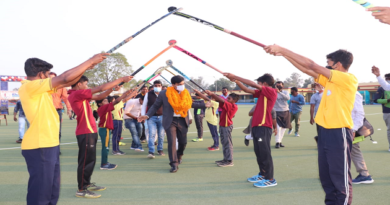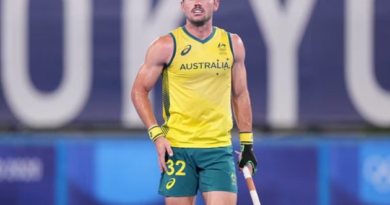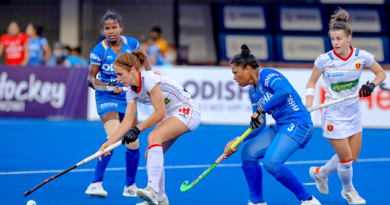Consistently Beating Top Sides Will Make India World-Beater: Terry Walsh
The Olympic bronze medal feat has put Indian men’s hockey on a high pedestal. The Blueshirts vanquished the ‘Aussie setback’ in the league phase and dished out a robust team effort that saw them put it across Germany in an absolute humdinger to clinch the bronze – their first Olympic medal in 41 years. The Olympic podium finish – the first since the 1980 Moscow Olympics gold medal – has catapulted Indian into global hockey limelight.
Former Indian men’s team coach and one of Australia’s finest forwards ever, Terry Walsh, is delighted with the way the Indian team make the right noises at the Tokyo Olympics. “I wasn’t at all surprised by India winning the Olympic bronze. The Indian team have been making steady progress over the last 5-6 years or so and it is a great boost for the hockey-crazy nation. The India-Germany bronze medal play-off match was the best match of the Olympics as I thought most of the other games were lacking in excitement. The India-Germany was a hugely entertaining affair – a great advertisement for world hockey,” says Walsh in an exclusive chat with Hockey Passion from Perth, Australia.
The 67-year-old four-time World Cupper and two-time Olympian, under whose coaching stint India won the 2014 Asian Games gold after a gap of 16 years, shares his perspective about the improvement areas India should focus on. “India must look to be a world-beater by beating top sides like Australia, Belgium, Netherlands, Germany, Argentina, Great Britain. Of course, they have been beating some of these sides in recent times, but they need to win against these sides on a regular basis to be talked about as a world-beater and considered in the same league as Australia, Belgium and Netherlands,” he points out.
Walsh, who was Australia’s top goal-scorer at the 1984 Los Angeles Olympics and scored twice in Australia’s 4-2 win over India in that Olympics, pours his thoughts on India’s 1-7 mauling at the hands of Australia at Tokyo. “Australia were in full flow and we all know they like to dominate from the outset. As far as India was concerned, their defensive structure was severely compromised, it was non-existent and that contributed to the one-sided scoreline,” he makes his point.




